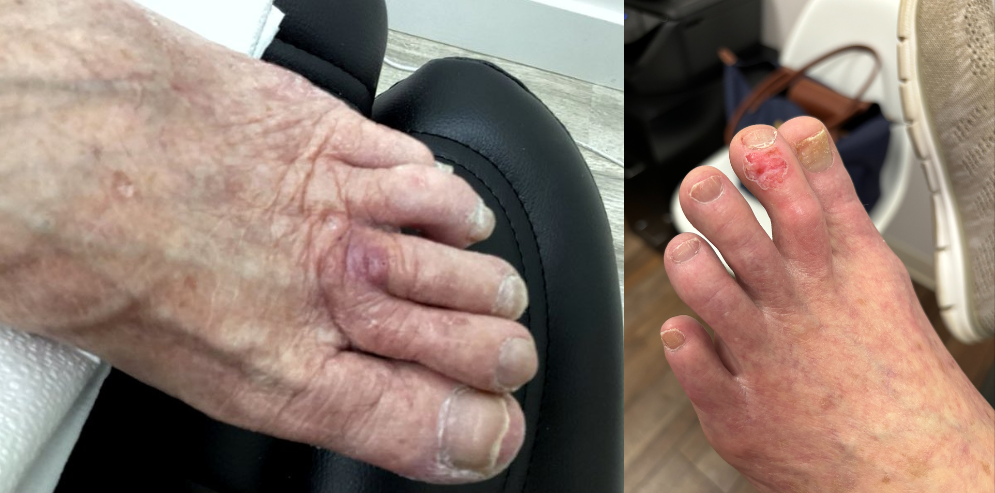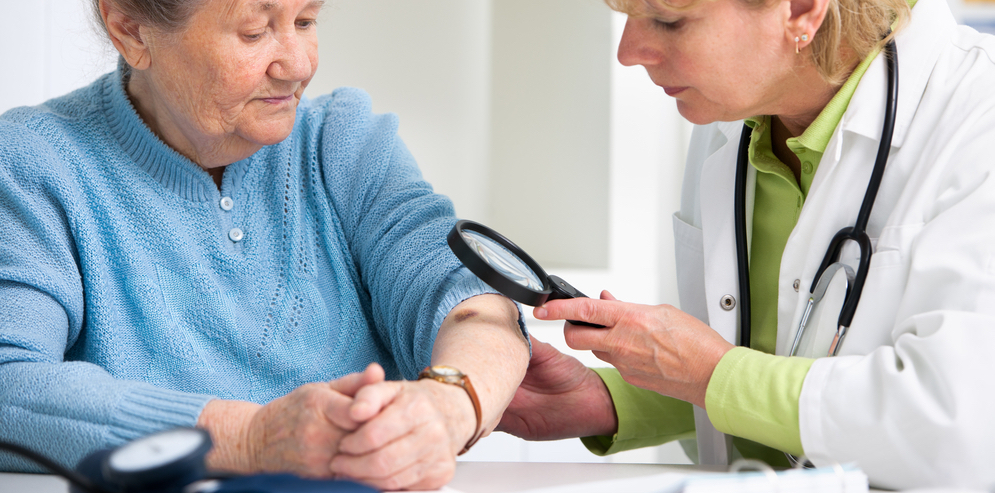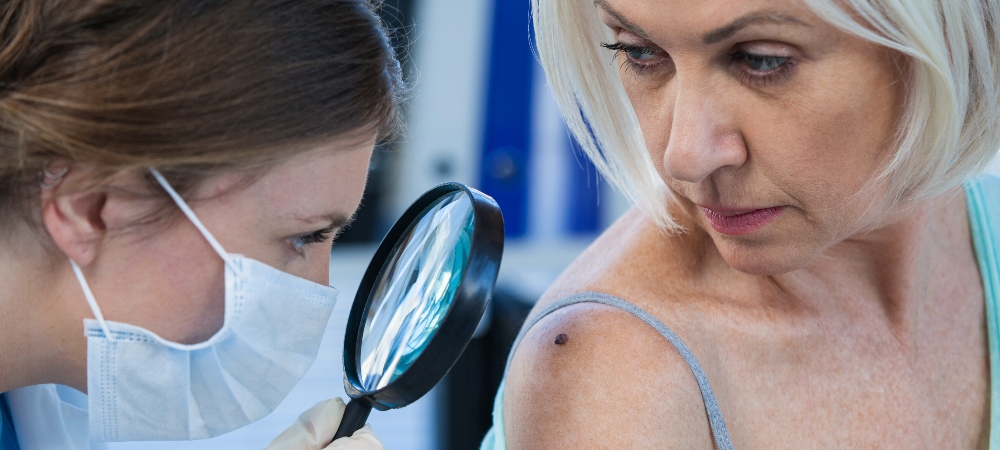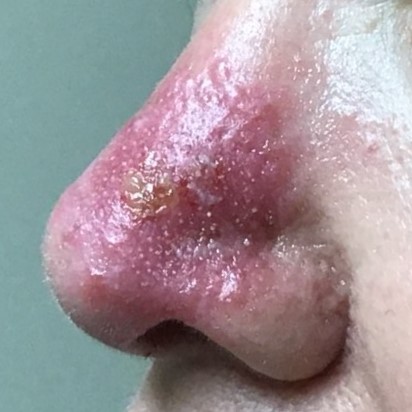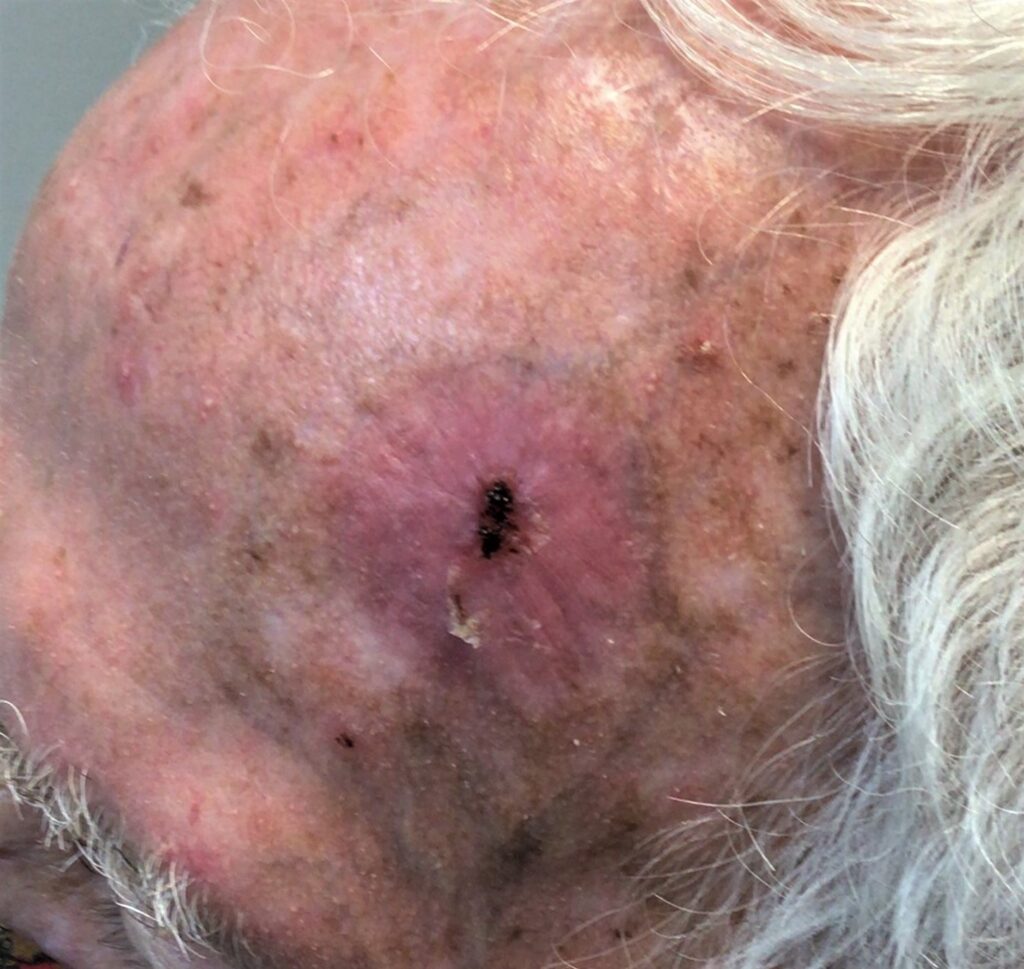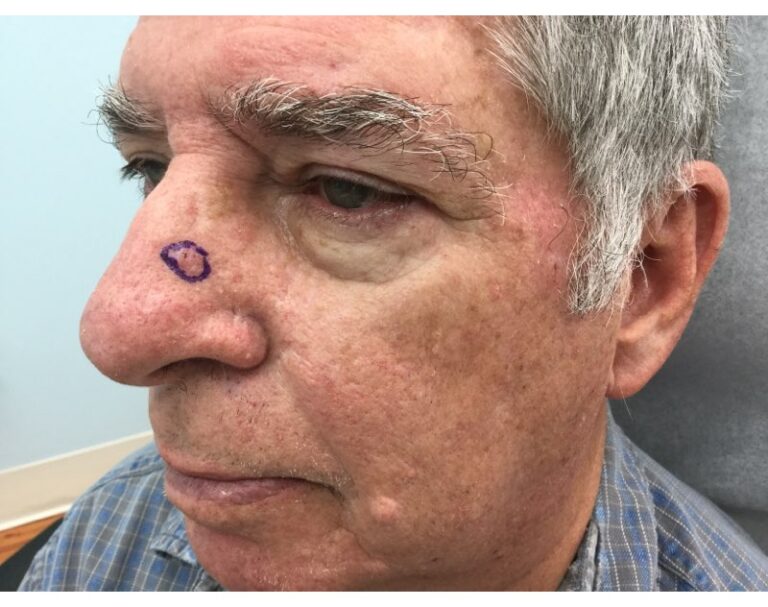
Is skin cancer contagious if you touch it? No, skin cancer is absolutely not contagious—either by touch or by any other means. Although certain viral and bacterial infections are linked to 15–20% of cancers worldwide, cancer itself is not the kind of disease that can be transmitted by close contact and shared air. If you or someone in your life has recently been diagnosed with skin cancer, there is no reason to isolate or avoid contact with others. On the contrary, it’s important to seek support from your loved ones during this time!
Why Isn’t Skin Cancer Contagious?
You know that skin cancer can’t be transmitted via touch or air, but why? Here’s what you should keep in mind:
- Cancer cells spring up in a person’s body and start to reproduce in an abnormal manner.
- Generally speaking, the body’s immune system recognizes unfamiliar cells and destroys them before they can replicate. Cancer occurs when the body has been unable to identify or eliminate the malignant cells on its own.
- If for some reason, cancerous cells from another source enter into a new, healthy body, that person’s immune system will be able to identify and destroy them right away.
Can Skin Cancer Ever Be Contagious?
Can skin cancer be contagious? The short answer is no, but there are certain complexities to keep in mind. Although there is an extremely small risk of ‘catching’ cancer as a result of an organ transplant, this is primarily because transplant recipients must take drugs which counteract the natural behavior of their immune systems. Owing to extensive screenings that take place before every transplant, cancer in these cases is more likely to develop within the transplant recipient’s body, as a result of their repressed immune system, than it is to result from transmission via the transplant.
Partly for these reasons, organ transplants may raise one’s risk of contracting skin cancer—especially common forms of the disease, including basal and squamous cell skin cancers. Those who have had an organ transplant are more than 100 times more likely to contract squamous cell skin cancer, so regular skin cancer screening becomes that much more important.
Cancer never spreads like an infectious disease, and although one might catch wind of so-called “cancer clusters” on occasion, any statistically surprising rates of occurrence are generally explainable by behavior or shared lifestyle.
When Can An Infection Cause Cancer?
Although cancer in itself is not infectious or contagious, other contagions have been linked to cancer. Some viruses insert their genes into otherwise healthy cells, altering their reproductive behavior and leading to the development of cancer. Viral or bacterial infections which suppress the immune system, as well as infections that result in long-term inflammation, are also linked to higher occurrences of cancer. Parasites can have a similar impact. However, it is important to emphasize once again that skin cancer itself is not contagious.
Explore Image-Guided SRT if You Receive a Diagnosis
You deserve to be comfortable with the care that you receive. If you’ve received a diagnosis, ask your doctor if Image-Guided SRT is right for you. Image-Guided SRT is a surgery-free cure for common forms of skin cancer like basal and squamous cell skin cancer, and you can pursue treatment without interruptions to your daily life. Find out how it works and talk to your doctor to learn if it’s right for you.
